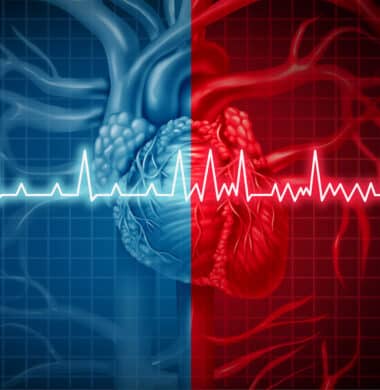How We Are Making a Difference,

South Denver Cardiology Associates is dedicated to ensuring that we have the best technology and techniques for treating cardiovascular disease. Now we’re proud to introduce another new technique: Pulse Field Ablation (PFA), a new approach for treating atrial fibrillation. This new technique is safer than older treatments, and we are happy to be the first practice to perform this type of treatment in the tri-state area of Colorado, New Mexico and Wyoming.
When you visit South Denver Cariology, our cardiologists take the time to understand your needs and match you with the best treatment for you, whether that’s a new advanced technology or a more traditional procedure.
What Is Atrial Fibrillation
Atrial fibrillation (sometimes abbreviated AF or afib) is the most common form of heart arrhythmia. Heart arrhythmia is when your heart doesn’t beat in a steady, regular rhythm.
In atrial fibrillation, the upper chambers of the heart (the left atrium and right atrium) beat erratically. People with this condition may experience disruptive symptoms such as heart palpitations, chest pain, shortness of breath, and dizziness. These symptoms can make people think they are experiencing a heart attack and can lead to anxiety for sufferers.
In addition, atrial fibrillation can increase your risk for more dangerous complications.
Potential Complications of Atrial Fibrillation
Perhaps the most worrying complication of atrial fibrillation is heart failure. Although we don’t know for sure that atrial fibrillation causes heart failure, we do know that atrial fibrillation is common in people with heart failure – especially severe cases, where up to 50% of heart failure patients have atrial fibrillation. We also know that treating atrial fibrillation can reduce the risk of heart failure and, consequently, cardiovascular death.
Atrial fibrillation also contributes to an elevated stroke risk – it can make you five times more likely to have a stroke. That’s because the irregular rhythm of atrial fibrillation lets blood pool in the heart. This pooled blood can form clots, which the heart then pumps to the brain, where they block vital blood vessels, leading to brain damage or even death.
People with atrial fibrillation are at an increased risk of dementia. In part, that’s due to the increased stroke risk, including the risk of so-called silent stroke. Silent stroke occurs without a person or their doctor knowing it occurred, although the effects of the stroke become visible later.
Older Treatment Options for Atrial Fibrillation
 With the known risks associated with atrial fibrillation, people have tried several treatment options to try to control atrial fibrillation and its complications.
With the known risks associated with atrial fibrillation, people have tried several treatment options to try to control atrial fibrillation and its complications.
Medication is often the first step in treating atrial fibrillation. Some medications try to control the irregular rhythm of the heart, and others thin the blood to reduce the risk of clotting (and therefore stroke). However, these treatments only work in about half of cases, and they have common and sometimes serious side effects.
Ablation is a more effective treatment for atrial fibrillation. The cause of atrial fibrillation is an area of the heart that causes erratic electrical impulses that trigger arrhythmic heartbeats. Cardiac ablation removes, kills, or disables the heart tissue responsible for the erratic impulses.
In both techniques, doctors thread a catheter into the region responsible for the erratic heartbeats. In radiofrequency ablation, the catheter blasts the region with damaging energy, causing it to heat up and killing the tissue. In cryoablation, a balloon catheter is directed to the source of the erratic impulses. Doctors inflate the balloon with a gas coolant, which chills the tissue to disable it. The long-term effectiveness for both types of ablations is about 75%.
Risks of Extant Options
We already mentioned that medications for atrial fibrillation come with side effect risks. Anticoagulants have a risk of severe bleeding, and medications for rhythm control can sometimes cause your heart to beat too slowly, leading to dizziness, headaches, fatigue, and more.
Thermal ablation techniques also carry risks. The primary risk is that the ablation energy affects more tissues than intended. The esophagus (tube to your stomach), nerves, and your pulmonary artery might be damaged by thermal ablation.
Introducing Pulse Field Ablation
 Pulse Field Ablation (PFA) is a new technique for controlling atrial fibrillation. Instead of heat or cold, PFA uses strong electric shocks to kill the cells responsible for afib.
Pulse Field Ablation (PFA) is a new technique for controlling atrial fibrillation. Instead of heat or cold, PFA uses strong electric shocks to kill the cells responsible for afib.
As with other types of cardiac ablation, your cardiologist will thread a catheter into your heart to target a precise region of the heart. The cardiologist then delivers the energy to the heart, through this catheter.
The treatment is then complete, and the cardiologist withdraws the catheter.
Benefits of Pulse Field Ablation
PFA offers three main benefits over the other ablation techniques.
The procedure has fewer complications. The risk of major complications is less than 1%, compared to about 2.5% for thermal ablation.
Finally, PFA has a higher long-term success rate in treating afib than other types of ablations. In some studies, it’s a small margin (79% vs. 76%), but in other studies the difference is pronounced: 88% vs. 78%, and success rates for the technique improve with experience.
Get Advanced Cardiology Services at South Denver Cardiology Associates
At South Denver Cardiology Associates, our own cardiologist Dr. Sri Sundaram performed the first PFA procedure in the tri-state region area of Colorado, New Mexico and Wyoming on March 13, 2024. We are happy to introduce this new technique because it is better for our patients for the reasons discussed above:
- Safer for the patient
- Fewer complications
- Higher effectiveness
PFA seems to have a greater benefit for certain types of afib, so it gives us another way to customize afib treatment to individual patients’ needs.
Matching patients with their ideal treatment is an essential part of our mission at South Denver Cardiology. We put our patients’ needs first, and we take the time to listen so we can identify the best treatment for you, whether that’s cardiac ablation, medication, or just simple lifestyle changes like a healthier diet and more exercise.
To talk to one of our cardiologists about the best treatment for your needs, please call us or use our online form to request an appointment. South Denver Cardiology Associates serves patients in Denver, Littleton and the surrounding areas.
Sign Up
As with any health concerns, your specific treatment program should be discussed thoroughly with your primary care physician as well as any specialists who may need to be consulted – like a cardiologist.
- The Renal Warrior Project. Join Now
- Source: https://southdenver.com/south-denver-cardiology-offers-pulse-field-ablation-to-treat-atrial-fibrillation/
